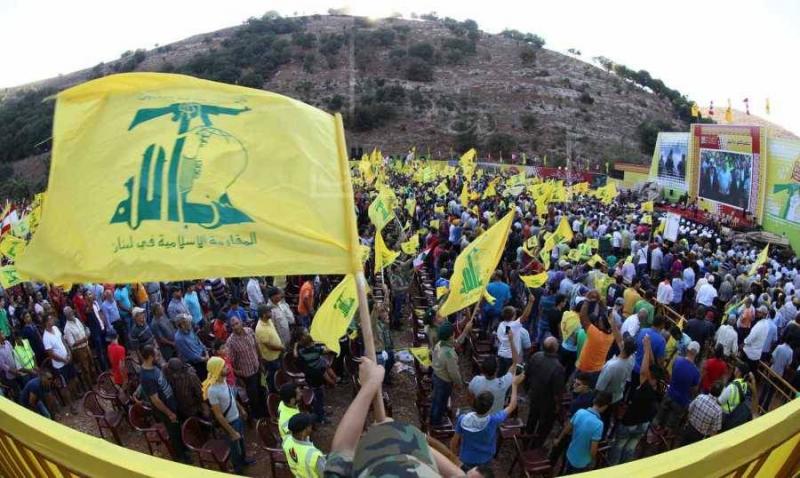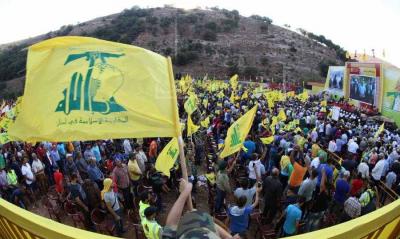Hezbollah officials have reverted to a language of threats and accusations against opponents in light of several positions related to the ongoing war in the south and the presidential election. One of the latest statements came from the party's Deputy Secretary-General, Naeem Qassem, who stated that resistance is the only exclusive option for expelling occupation and restoring independence while defending our country. He insisted that we cannot claim a strong Lebanon, an independent Lebanon, or a future Lebanon without its people, sects, resistance, army, and citizens; without this fundamental support, resistance, Lebanon cannot stabilize or successfully engage in conflict. He directed comments at the party's critics, stating: as for those who seek liberation through pen and paper, who seek protection from the "great devil" America, and who look to their future through social media, they may remain in their rooms playing and reveling; we are on the right path, and the convoy is paving its way as reported by "Asharq Al-Awsat."
Former Minister and MP Ashraf Rifi believes that the party's return to threats is a result of the crisis it faces due to choices that contradict the majority of Lebanese preferences. In contrast, Ghias Yzbek, a member of the Lebanese Forces bloc, categorizes the party's threats as a result of its leadership's inconsistency, oscillating from rigidity to appeasement and occasionally delivering severe or mild messages. He views this as indicative of the party reaching its maximum threshold in using military force without receiving popular or political support, and in the absence of state assistance.
Rifi urged Hezbollah to refrain from threats, stating to "Asharq Al-Awsat": "Lebanon is a pluralistic country; no single component can determine its choices. We will not retreat on the homeland we decide the fate of, not Iran and its agent (Hezbollah), and voices from the Christian-Islamic community reflect a refusal to let Lebanon be an Iranian province." Yzbek reminded of comments made by the head of Hezbollah's parliamentary bloc, MP Mohammad Raad, critiquing those he called the "negligent" Lebanese who wish to enjoy life and leisure. He condemned those opposing Hezbollah, saying: "The turmoil in Gaza has produced all this pus within, so we can be enlightened about who we cooperate with, who cooperates with us, and who tells the truth to us and lies to us… We will arrange our positions on this basis."
Yzbek questions whether the issue for them is doctrinal or tactical, suggesting they are revolutionary when it suits them and "peaceful" when circumstances are favorable, while also rejecting Qassem's attack on those who seek liberation through pen and paper, affirming that Lebanon was built by its writers, thinkers, and free minds. Concerning whether these positions indicate a pre-emptive investment in war and what Hezbollah considers a victory, Rifi affirmed: "No matter what settlements arise, we will not allow the translation of what they claim is a divine victory within. We decide our fate, and Hezbollah must reassess its calculations," adding that the party once boasted having 74 MPs in parliament, yet now barely claims 51, arguing that if it were capable of controlling the situation, it could have easily appointed a president.
Yzbek highlights a different logic and understanding of winning and losing, asserting: victory is either complete or nonexistent—what good is it if the people die and Israel is destroyed? He notes that the problem with Hezbollah did not start on October 7 when the war was opened on the southern front, clarifying: with this war, the deep-seated problem between the concepts of state and militia has intensified. While the sound of cannons may temporarily overshadow the deep crisis, it has not erased the lasting impacts we are still grappling with, which will resurface upon the war's conclusion and return to the state of affairs prior to October 7.
There remains a strong opposition to dragging Lebanon into war and limiting negotiations to Hezbollah, as expressed by MP Samy Gemayel, who addressed the international community leading negotiations, stating: "We reject that negotiations be limited to Hezbollah and Israel in a way that seeks to satisfy both parties to halt hostilities while the Lebanese people are sidelined." During a meeting with a Kataeb delegation from the Zahle region, he called for placing Lebanon's interests on the table, asserting that the opposition is ready to engage on behalf of the Lebanese people. He viewed UN Resolution 1701, which prevents dragging Lebanon into war, as insufficient, emphasizing that Resolution 1559 (disarming militias) must also be implemented concurrently to disarm armed militias. He deemed this as more crucial than the first resolution, which if applied, would have negated the need for new decisions.
He noted that the most significant step today is to close the southern front, and regardless of the war's outcomes, there should be a session for candid dialogue among Lebanese to address all issues without excluding anyone or provoking wars, ensuring that everyone regains their rights, rejecting compromises on freedom, dignity, and land according to "Asharq Al-Awsat."




